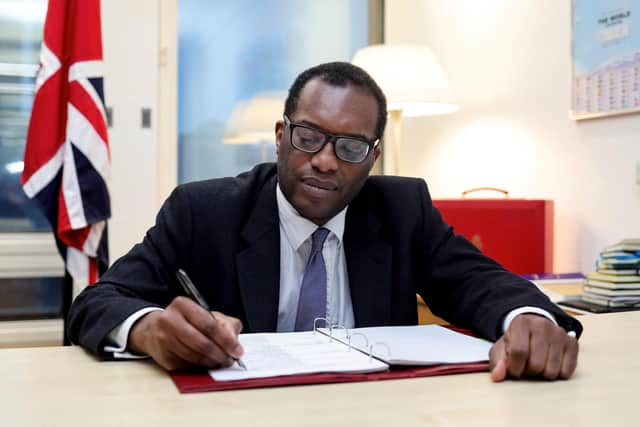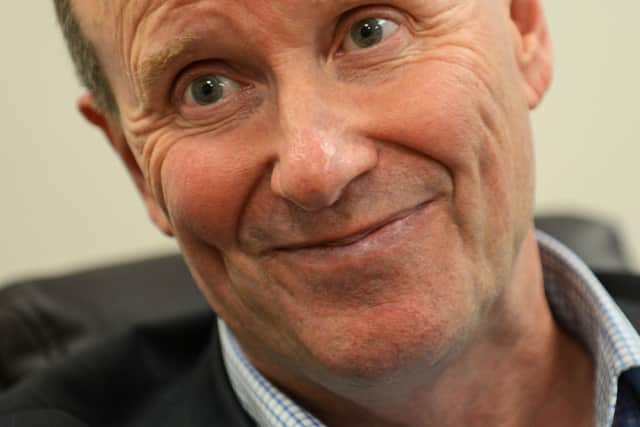Steel bosses meet new business secretary as worries mount over Brexit, decarbonisation, procurement and electricity prices
and live on Freeview channel 276
Mr Kwarteng, who took up the post in January, said the forthcoming ‘Industrial Decarbonisation Strategy’ would show how manufacturing could thrive despite the ‘huge challenge’ of transitioning to low carbon.
The UK government has signed up to a legally-binding target of making the UK carbon neutral by 2050.
Advertisement
Hide AdAdvertisement
Hide AdHe also highlighted government financial assistance including a £250m Clean Steel Fund and £500m to help make electricity costs more competitive.


And he re-stated the government’s commitment to levelling up the country and protecting jobs ‘as we build back better from the pandemic’.
The meeting came two days before Liberty Steel’s lender collapsed into administration raising fears for 5,000 jobs.
UK steel producers pay 86 per cent more for electricity than their competitors in Germany and 62 per cent more than in France, according to UK Steel.
Advertisement
Hide AdAdvertisement
Hide AdGareth Stace, UK Steel director general, said the sector had also been hit by Brexit and reform of procurement rules were needed. But he welcomed the meeting.


He said: “That the Steel Council met is an indication that the Government understands the importance of our industry to our wider ambitions on decarbonisation, particularly in the year of COP26.
“It’s clear that any agenda for a zero-carbon economy is an agenda for steel – 8 of the 10 steps in the Government’s Green Ten Point Plan require steel.
“Like all industries, we have faced challenges due to COVID-19 and the EU exit changes in trading conditions for the movement of goods.
Advertisement
Hide AdAdvertisement
Hide Ad“We are also hamstrung by industrial electricity costs significantly higher than those of our European competitors and face the continuing threat of import surges that could undermine our domestic competitiveness.
“Our industry still needs action from government; action to tackle the electricity price disparity, action to reform procurement so that our steel producers are able to contribute to national projects and continuing support to ensure that the steel sector can continue to thrive and develop as a key part of our economy as we look to minimise our environmental impact and build a zero-carbon Britain.
"That future requires more steel made in Britain – not less.